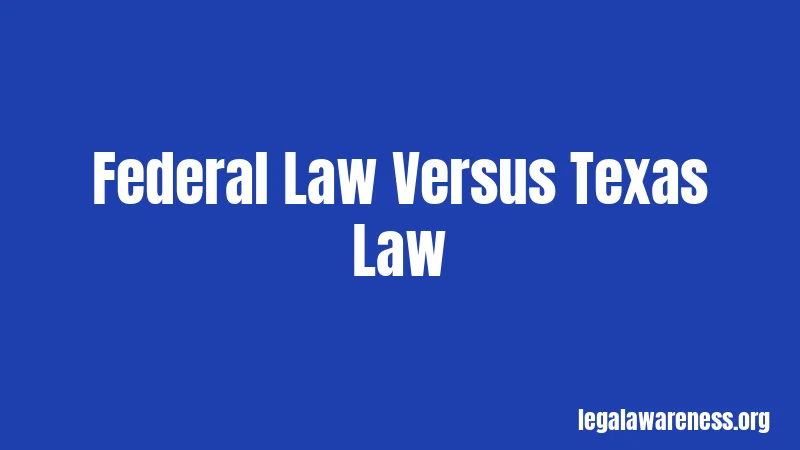Right-to-Work Laws in Texas (2026): Your Complete Protection Guide
You probably hear about right-to-work laws all the time. But what do they actually mean? If you work in Texas or are thinking about moving here, you need to understand this. These laws protect your freedom to choose. They affect your paycheck, your job security, and your rights at work. Let me break it down in plain English.
Texas takes this seriously. The state actually calls it “the right to live.” Yep, that’s in the law. Texas has protected right-to-work since 1993. That’s over 30 years of solid legal protection for workers like you.
What Exactly Is Right-to-Work?

Okay, let’s start simple. Right-to-work means you can’t be forced to join a union. You also can’t be forced to pay union dues. That’s it at the core. Pretty straightforward, right?
But here’s where it gets interesting. If you work somewhere with a union already in place, you have a choice. You can join and pay dues. Or you can stay out and keep your money. Either way, you keep your job. The law protects both options.
Think of it like your job security. Your employer can’t fire you for refusing to join a union. They can’t threaten your paycheck either. That’s illegal in Texas.
Texas Statute Section 101.052 makes this super clear. It says plainly: “A person may not be denied employment based on membership or nonmembership in a labor union.” No exceptions. No loopholes. That’s the law.
The Core Right-to-Work Rules in Texas
Let’s talk about the actual protections you have. These are your rights spelled out in Texas law.
First, no forced membership. Your employer literally cannot require union membership as a job condition. They can’t say “join the union or you’re fired.” That contract would be void and worthless in Texas.
Second, no forced dues. Even if a union exists at your workplace, you can’t be required to pay dues. If your boss tries to deduct union fees from your paycheck without written permission, that’s illegal.
Wondering what counts as written permission? Good question. You have to actually sign something. It has to be clear. You have to agree to it knowingly. A vague statement in an employee handbook? Not enough.
Third, you can’t be punished for your choice. Stay out of the union, and they can’t treat you differently. Join the union, and they can’t either. Your choice is protected.
Fourth, you can bargain freely. You have the right to negotiate directly with your employer. You don’t need a union to do this. Texas law says you can bargain “individually or collectively” for your working conditions.
This is powerful stuff. It means you have options. You control your choice about union membership. The law backs you up.
Union Security Agreements and Your Rights

Here’s where things can get confusing. Let me clear it up for you.
Sometimes unions try to negotiate special agreements with employers. These are called “union security agreements.” The union wants to require everyone to join or pay fees.
In Texas? Not allowed. These agreements can’t force you to join. They can’t force you to pay. Period.
Some states let unions do this with something called “agency fees” or “fair share fees.” The idea is that non-members benefit from union negotiations, so they should pay something. Texas says no. This is one of the clearest protections the law gives you.
But here’s the nuance. If you voluntarily join a union, you agree to its terms. That’s different. You chose it. The agreement you sign can require dues payment. But it has to be voluntary. That’s the key word.
And here’s the important part. You can leave the union. You’re not trapped forever. Most unions allow members to quit with reasonable notice, typically 30 days. Check your union agreement for the exact rules.
What if the union makes it impossible to quit? That’s a problem. They can’t trap you. They can’t charge you penalties for leaving. If they do, that’s illegal.
What Happens If Your Employer Violates Your Rights
Okay, pause. This part matters. Read it carefully.
If your boss tries to force you into a union, or fires you because you refuse, that’s against Texas law. You have legal options. You can fight back.
Let’s paint a real picture. Your supervisor says: “Everyone here joins the union. You have to pay dues or you’re out.” That’s not allowed. Your employer violated your rights.
Or imagine this: You were pressured to join, then decided to quit. The union says “not so fast, you owe us three months of dues anyway.” That’s also illegal. You have the right to leave.
If this happens to you, here’s what you can do. First, file a complaint with the Texas Attorney General’s Office. They enforce right-to-work laws. They can investigate and take action. This is free.
Second, contact an employment lawyer. Many offer free consultations. They can tell you if you have a strong case. Some work on contingency, meaning they take payment only if you win.
Third, you can file a civil lawsuit. You might recover damages if the violation was real. That means money for lost wages, attorney fees, and other costs the violation caused.
The penalties for employers who violate this are real. Courts take it seriously. If your employer broke the law, they could owe you significant money.
Federal Law Versus Texas Law

This is important stuff. Stay with me here.
Federal law and Texas law both protect right-to-work. The National Labor Relations Act (NLRA) is the main federal law. It allows states to have right-to-work laws. Texas does.
But here’s what you need to know. Texas law is actually stricter in some ways. Texas goes beyond federal minimums. The state gives you extra protections.
For example, Texas law prohibits unions from collecting “work permit” fees. That’s where a union charges you just for the right to work. Federal law is less clear on this. Texas makes it illegal. Period.
Texas also requires written consent for dues withholding. You have to actively agree. Your employer can’t just assume you’re okay with it. This protects you from accidental or sneaky deductions.
These protections stack on top of federal rights. You get both. This makes Texas a genuinely strong right-to-work state.
Public Sector Employees and Special Rules
Let’s talk about government workers. This applies to teachers, police, firefighters, city employees, and anyone working for a public agency in Texas.
Good news: you have the same right-to-work protection as private sector workers. You can’t be forced to join a public employee union. You can’t be forced to pay dues. Same rules apply.
There’s been some debate about whether public employees have slightly different rules. The answer is no. The core protection is the same for everyone. Public or private, union or no union.
Public sector unions are powerful in some Texas cities. Teachers unions, police unions, city worker unions. They’re organized and well-funded. But they still can’t force you to join.
If your public employer or union is pressuring you, you have the same remedies. You can file complaints and lawsuits. The law protects you equally.
One thing that’s different in the public sector is prevailing wage. Some government projects require workers to pay union scale. But here’s the key: you still have right-to-work protection even on prevailing wage jobs. You still can’t be forced to join the union. That’s Texas law.
Penalties for Violations
So what happens when someone breaks these laws? The penalties are pretty serious.
If a labor union violates the right-to-work law, they face civil penalties. The law allows fines up to $1,000 per violation. That might not sound like much, but violations add up. Multiple violations mean multiple fines.
A labor union officer who violates the law commits a misdemeanor offense. That’s criminal, not just civil. It’s taken seriously.
The person who violates the law is also liable for all damages. That means you could recover money if you were harmed. Lost wages, attorney fees, emotional distress. Everything that resulted from the violation.
The state can get a restraining order or injunction. This stops illegal behavior immediately. Judges take this seriously.
Here’s what’s interesting. The law allows any district attorney or the state attorney general to prosecute violations. This means there’s enforcement muscle behind the protections.
But honestly, most violations don’t go to prosecution. Instead, people file civil lawsuits and demand damages. That’s often more effective.
Recent Developments and 2025-2026 Updates
So what’s been happening with Texas right-to-work laws lately? The law itself hasn’t changed dramatically. It’s been stable since 1993.
But enforcement and interpretation keep evolving. Courts handle cases regularly. Labor unions keep trying creative workarounds. Courts shut those down.
One major development involved the National Labor Relations Board (NLRB). Federal decisions flow down and affect state law. So while Texas’s statute didn’t change, how it gets applied might shift a bit based on federal cases.
In 2024 and 2025, there were ongoing discussions about union organizing efforts in Texas. Some unions tried to increase membership in the state. But they have to do it legally. They can’t force people to join. That’s the boundary.
Another thing happening is that more workers in Texas are becoming aware of their rights. Social media helps. Employment lawyers are more visible. Workers know they have options. This makes forced unionization much harder to pull off.
For 2026, expect the law to stay stable. The core protections aren’t going anywhere. But continue to expect legal battles about what exactly counts as a violation. That’s normal in labor law.
How to Protect Yourself: Action Steps
Okay, let’s talk practical. What should you do to protect your rights?
First, know the law. You’re doing that right now by reading this. Good start. Understand that you have the right to choose. That choice is protected.
Second, read everything before you sign. Employment agreements, union applications, anything related to work or unions. If you don’t understand it, ask. Don’t just sign things.
Third, document everything. If someone pressures you about union membership, write it down. Include dates, times, who said what, and any witnesses. Keep this somewhere safe.
Fourth, demand written explanations. If your employer or union says you need to pay something, get it in writing. Clear writing that explains what you’re paying and why. Keep copies.
Fifth, if you’re pressured or threatened, respond in writing. Send an email or letter saying: “I understand Texas is a right-to-work state. I’m exercising my right not to join the union and not to pay dues.” Keep a copy.
Sixth, if problems continue, file a complaint with the Texas Attorney General’s Office. They handle right-to-work violations. It’s free and they investigate.
Seventh, talk to an employment lawyer if needed. Many offer free consultations. They know Texas law inside and out. They can tell you if you have a case.
Eighth, consider filing a civil lawsuit if the violation was serious. You might recover damages. An attorney can tell you if it’s worth pursuing.
Special Situations and Exceptions
Here’s something important: there are basically no exceptions to Texas’s right-to-work law. That’s the point of the law. It applies everywhere, to everyone.
But there are situations that sometimes confuse people. Let me clear them up.
Some workplaces try to use “closed shops” where you must join a union to get hired. That’s illegal in Texas.
Some try “agency fee” arrangements where non-members pay fees for union services. Not allowed in Texas.
Some try prevailing wage requirements on construction projects that mandate union participation. You still have right-to-work protection. Even on prevailing wage jobs, unions can’t force membership.
The only real variation is what happens when you voluntarily join a union. Then you make an agreement. That agreement can have conditions. But voluntary is the key word.
If you choose to join, read the union agreement before signing. Know what you’re agreeing to. Understand the dues, the terms, and how to leave if you want to.
Frequently Asked Questions
Can my employer fire me for refusing to join a union?
No. That’s illegal in Texas. You can’t be fired, demoted, or punished for exercising your right-to-work. If it happens, you have legal recourse.
Can a union prevent me from getting a raise if I don’t join?
Absolutely not. Your employer can’t tie benefits or raises to union membership. That’s coercion. It’s illegal. Document it and report it.
What if I was already forced to pay union dues?
You might be able to get a refund. Contact an employment lawyer. File a complaint with the Texas Attorney General. Keep records of what you paid.
Can a union pressure me to join even if they can’t force me?
A union can invite you to join and explain benefits. But they can’t threaten you, intimidate you, or make your job harder if you refuse. There’s a line between persuasion and pressure.
Is right-to-work the same everywhere?
No way. About 28 states have right-to-work laws. The other states allow forced union membership or dues in some situations. Texas’s law is pretty strong.
What’s the difference between right-to-work and “at-will” employment?
Right-to-work is about union membership. At-will means your employer can fire you for almost any reason. They’re different things. Texas has both.
Can unions charge initiation fees even in right-to-work states?
Yes, but with limits. In Texas, initiation fees are allowed. But they can’t be excessive. And they’re only charged to members who voluntarily join.
If I join a union voluntarily, can I quit whenever I want?
Basically yes. You should have the right to quit with reasonable notice. Check your union agreement. Typically it’s 30 days or during a specific window.
Final Thoughts
You now know the basics of Texas’s right-to-work laws. These are strong protections. You have the right to work without forced union membership. You can refuse paying union dues. That’s your choice to make.
But understanding your rights is just step one. You also need to use them. If your employer or union violates these rights, speak up. File a complaint. Get legal help if needed.
The good news? Most employers in Texas respect this law. They know it’s the law. They follow it. Real violations aren’t super common. But they do happen. You need to be ready.
Stay informed. Read your employment agreements. Ask questions if something doesn’t make sense. Know your rights. Know where to get help.
If you ever feel pressured about union membership, remember: you have protection. Texas law backs you up. Use those rights. Protect yourself.
When in doubt, talk to an employment lawyer. They know Texas labor law. They can guide you. Many give free consultations. It’s worth the conversation.
References
Texas Labor Code Chapter 101: Labor Organizations
Texas Attorney General: Employment Law Information
Texas Workforce Commission: Labor Law Resources
